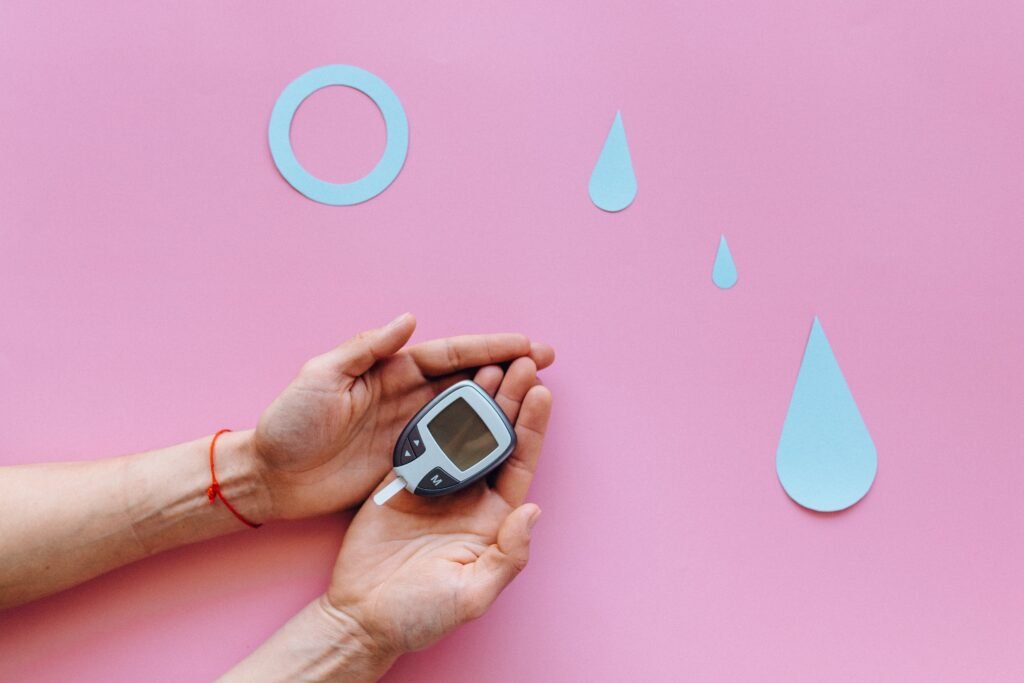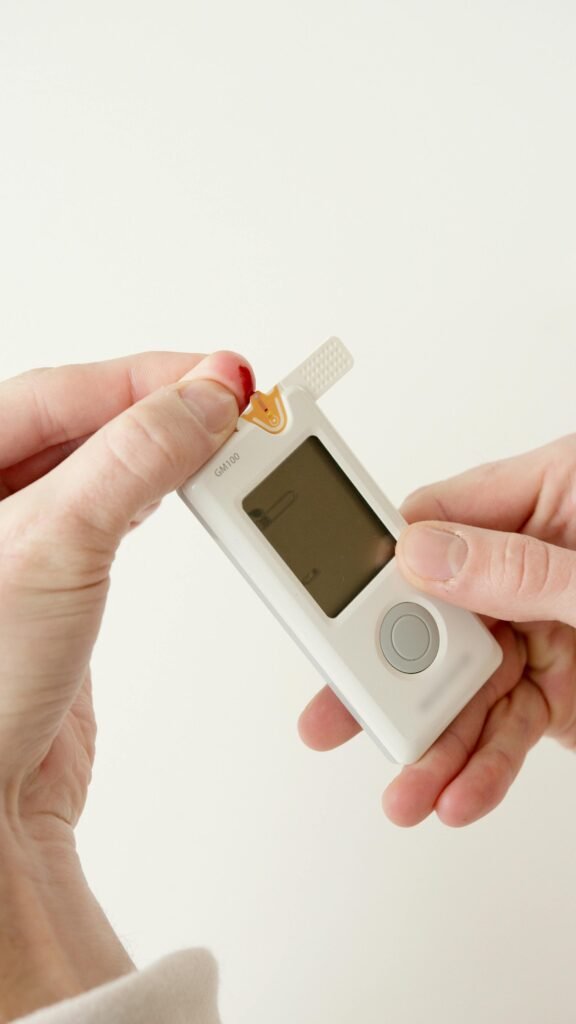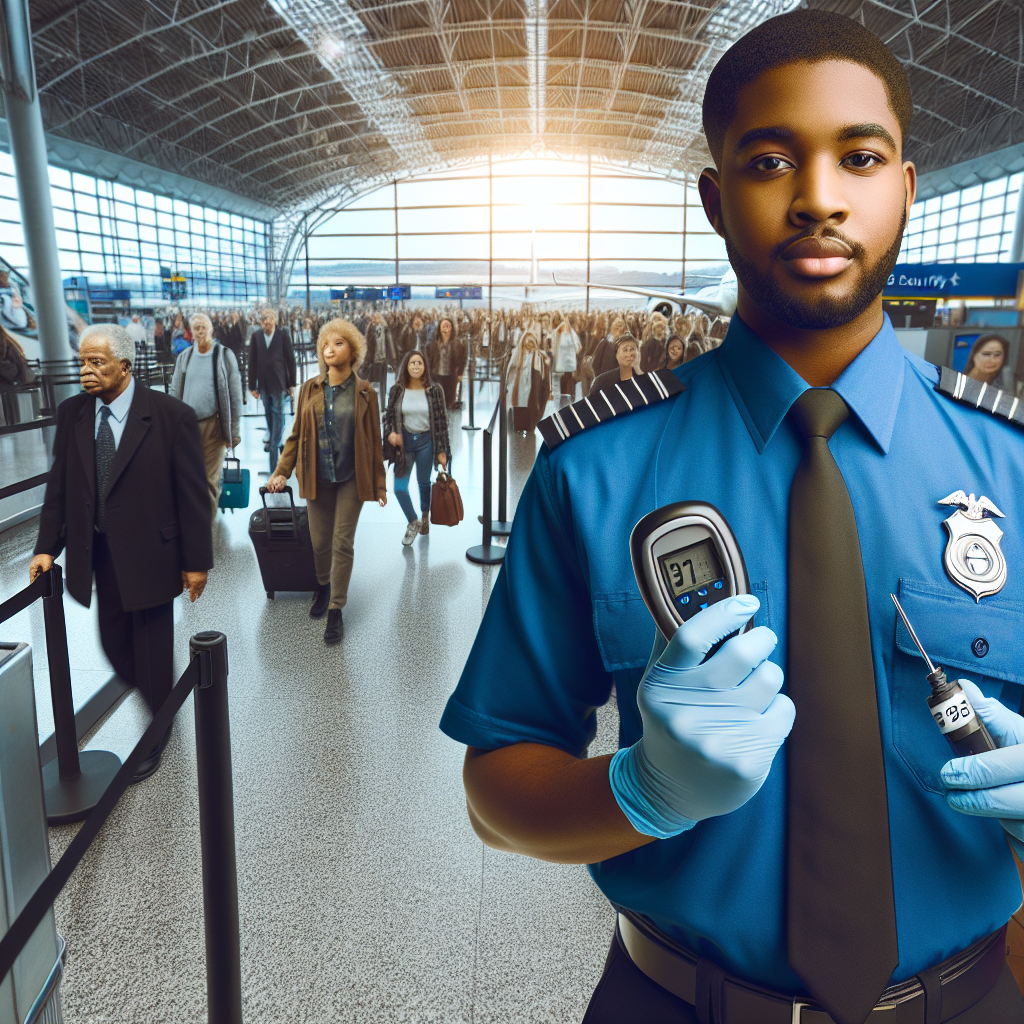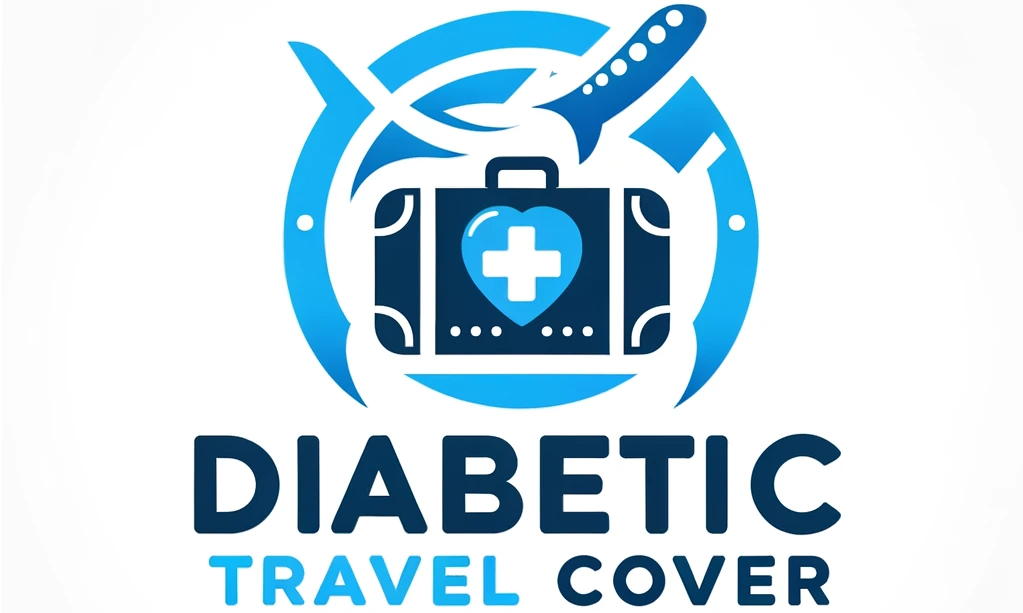If you’re living with diabetes and have upcoming travel plans, you may be wondering if you’re eligible for TSA Precheck. This article aims to shed light on this question and provide valuable information for individuals with diabetes who are interested in applying for TSA Precheck. Discover the answer to this query and gain insight into the process, requirements, and benefits of TSA Precheck for diabetics.

What is TSA Precheck?
TSA Precheck is a program offered by the Transportation Security Administration (TSA) that allows travelers to expedite the security screening process at airports. By enrolling in TSA Precheck, you can enjoy several benefits, such as shorter wait times, no need to remove shoes, laptops, or liquids from your carry-on bags, and a dedicated security lane.
Benefits of TSA Precheck
The primary advantage of TSA Precheck is the time-saving experience it offers. With TSA Precheck, you can bypass the regular security lines and instead use a dedicated lane, where the screening process is more efficient and streamlined. This means you can expect shorter wait times, less hassle, and a smoother journey through the airport.
Another significant benefit of TSA Precheck is that you can keep your shoes on, as well as leave your electronics and liquids inside your bags. This can be especially convenient if you’re carrying a laptop or have several liquids that would otherwise need to be removed and screened separately.
Additionally, TSA Precheck can provide an extra layer of convenience and peace of mind while traveling. With the program, you have the freedom to move through the security checkpoints without the need for excessive screenings, making your overall travel experience more relaxed and enjoyable.
Eligibility requirements for TSA Precheck
To be eligible for TSA Precheck, you need to meet certain criteria. Firstly, you must be a U.S. citizen, U.S. national, or Lawful Permanent Resident (LPR). Non-U.S. citizens can also apply if they meet specific eligibility guidelines.
Furthermore, all applicants must undergo a background check, so having a clean criminal history is essential. Other factors, such as age, citizenship status, and general compliance with TSA security measures, will also be taken into consideration during the application process.
It’s important to note that not all airports and airlines participate in the TSA Precheck program. Although a large number of airports across the United States support TSA Precheck, it’s always a good idea to check if your preferred airports and airlines are included before applying.
Understanding Diabetes
What is diabetes?
Diabetes is a chronic medical condition that affects the body’s ability to regulate blood sugar levels. It occurs when the pancreas either doesn’t produce enough insulin (a hormone that helps control blood sugar) or when the body is unable to utilize insulin effectively. As a result, individuals with diabetes may experience high blood sugar levels, which can lead to various complications if left unmanaged.
Types of diabetes
There are three main types of diabetes: type 1, type 2, and gestational diabetes.
Type 1 diabetes is an autoimmune disease in which the immune system mistakenly attacks and destroys the insulin-producing cells in the pancreas. This type of diabetes typically develops during childhood or adolescence and requires lifelong insulin therapy.
Type 2 diabetes is the most common form and develops when the body becomes resistant to insulin or doesn’t produce enough insulin to maintain normal blood sugar levels. It is often linked to lifestyle factors such as obesity, physical inactivity, and poor diet, although genetic factors also play a role.
Gestational diabetes occurs during pregnancy when hormones produced by the placenta interfere with insulin function. While it usually resolves after childbirth, women who have had gestational diabetes are at an increased risk of developing type 2 diabetes later in life.
Management of diabetes
Managing diabetes involves various strategies aimed at controlling blood sugar levels and minimizing the risk of complications. This generally includes regular blood sugar monitoring, healthy eating, physical activity, and medication (such as insulin or oral medications) as prescribed by a healthcare professional.
It’s important for individuals with diabetes to work closely with their healthcare team to develop a personalized management plan. This may involve setting target blood sugar ranges, adjusting medication dosages, and making lifestyle modifications to optimize overall health and well-being.

TSA Precheck and Medical Conditions
TSA’s approach to medical conditions
TSA recognizes that certain travelers may have medical conditions that require special consideration during the security screening process. They strive to provide reasonable accommodations while maintaining a high level of security standards. TSA’s approach to medical conditions is based on the principles of respect, privacy, and dignity for all passengers.
Diabetes as a medical condition
Diabetes is considered a medical condition that warrants specific considerations during the TSA screening process. While TSA Precheck itself does not offer official exemptions for medical conditions, travelers with diabetes can still take advantage of the program’s benefits. TSA Precheck can help expedite the overall screening process, reducing potential stress and inconvenience for individuals with diabetes.
Applying for TSA Precheck
General TSA Precheck application process
Applying for TSA Precheck is a straightforward process. You need to complete an online application, which includes providing personal information, such as your name, date of birth, and address. Once the application is submitted, you will need to schedule an appointment at a TSA Precheck enrollment center for an in-person interview.
During the interview, you will be fingerprinted, and your identification documents will be verified. It’s crucial to bring the necessary identification documents, such as your passport or driver’s license, to the appointment. After a successful interview, you will receive your TSA Precheck Known Traveler Number (KTN).
Providing medical information during application
While the TSA Precheck application does not specifically ask for medical information, it’s in your best interest to disclose any medical conditions, such as diabetes, that may impact your travel experience. This information can help TSA officers better understand your needs during the screening process and make suitable accommodations.
When completing the application, there may be an opportunity to provide additional comments or notes. This is where it’s beneficial to mention that you have diabetes and may require certain supplies or accommodations during the security screening process.
Doctor’s note for TSA Precheck
While not mandatory, having a doctor’s note can be helpful in providing TSA officers with a better understanding of your specific medical needs. The note can outline the necessary diabetes supplies you carry and any specific accommodations that may be required, such as allowing liquids or sharps containers in your carry-on bags.
Obtaining a doctor’s note can be as simple as contacting your primary care physician or the healthcare professional responsible for managing your diabetes. They can provide a personalized letter that addresses your unique circumstances and any special considerations that may be needed during the security screening process.

Traveling with Diabetes
Tips for traveling with diabetes
When traveling with diabetes, it’s important to plan ahead and take certain precautions to manage your condition effectively. Here are some helpful tips:
-
Pack extra diabetes supplies: It’s essential to carry more than enough diabetes supplies, such as insulin, syringes, test strips, and glucose meters, to account for unexpected situations or travel delays.
-
Keep medications and supplies with you: Store your diabetes medications, equipment, and supplies in your carry-on luggage to ensure they are easily accessible at all times. Checked baggage may be subject to temperature fluctuations or delays, which could impact the effectiveness of insulin and other diabetes medications.
-
Carry snacks and glucose sources: Have a stash of low-sugar snacks, glucose tablets, or juice boxes handy to quickly treat low blood sugar episodes, especially during travel when access to food may be limited.
-
Stay hydrated: Drink plenty of water throughout your journey to stay hydrated and help maintain stable blood sugar levels.
-
Follow your usual meal plan: Try to stick to your regular meal plan as much as possible, even while traveling. This will help you manage your blood sugar levels more effectively.
-
Stay active: Engage in physical activity whenever possible to help regulate blood sugar levels and offset the potential impact of sedentary travel.
-
Communicate with your travel companions: Inform your travel companions about your diabetes and let them know what signs or symptoms to look out for in case of an emergency.
Carrying diabetes supplies
As a traveler with diabetes, you are allowed to carry necessary diabetes supplies, such as insulin, syringes, lancets, and blood glucose meters, with you. These items are exempt from the TSA’s liquid restrictions, which means they can be carried in your carry-on bag without any size limitations.
To ensure a smooth screening process, it’s advisable to separate your diabetes supplies from the rest of your belongings and inform the TSA officer that you have diabetes-related items in your bag. This will allow them to handle your supplies with care and avoid any unnecessary delays.
Managing blood sugar levels during travel
Traveling can disrupt your usual routine, which may impact your blood sugar control. Here are some strategies to help you manage your blood sugar levels during your journey:
-
Monitor blood sugar frequently: Regularly check your blood sugar levels using your glucose meter to ensure they are within your target range. Traveling can lead to changes in activity levels, meal times, and stress levels, all of which can affect blood sugar levels.
-
Adjust medication dosage if needed: Consult with your healthcare professional before your trip to determine if any adjustments to your insulin or medication dosage are necessary to accommodate changes in your travel routine.
-
Be prepared for time zone changes: If you’re traveling across different time zones, work with your healthcare team to develop a plan for adjusting your medication schedule accordingly.
-
Be mindful of the impact of travel-related stress: Traveling can be stressful, and stress can affect blood sugar levels. Practice stress reduction techniques such as deep breathing, meditation, or engaging in activities you find relaxing.
-
Stay consistent with meals and snacks: While it may be tempting to indulge in new foods and treats while traveling, try to maintain consistency with your meal and snack choices to help regulate blood sugar levels more effectively.
Considerations for Diabetics
Potential challenges for diabetics with TSA Precheck
While TSA Precheck can make the screening process more efficient for individuals with diabetes, it’s important to consider potential challenges that may still arise. For example, there may be instances where TSA officers may need to inspect specific diabetes supplies more closely or ask additional questions to verify their authenticity.
Also, while TSA Precheck streamlines the security screening process, it does not guarantee that you will not be subject to additional screening measures. Random or circumstance-based additional screenings can still occur, regardless of whether you have TSA Precheck or not.
Special accommodations for diabetics
TSA strives to accommodate travelers with diabetes and other medical conditions to ensure a smooth and respectful screening process. If you have any concerns or specific needs related to your diabetes, do not hesitate to communicate with the TSA officers at the security checkpoint.
In some cases, TSA officers may ask you to provide additional information or demonstrate how your diabetes supplies function. This is done to maintain security standards while ensuring your personal health needs are met. Cooperation and clear communication with the TSA officers can help facilitate a more understanding and efficient screening experience.

Frequently Asked Questions
Is TSA Precheck available for all airports?
TSA Precheck is available at over 200 airports across the United States. However, it’s essential to note that not all airports and airlines participate in the TSA Precheck program. Before applying and planning your travel, it’s recommended to check if your preferred airports and airlines support TSA Precheck.
How long does TSA Precheck approval last?
Once approved for TSA Precheck, your membership is valid for five years. After this period, you will need to renew your membership to continue enjoying the benefits of TSA Precheck.
Can family members travel through TSA Precheck with a diabetic?
Unfortunately, family members or travel companions cannot join a TSA Precheck lane unless they have their own TSA Precheck eligibility. Each passenger must have their own TSA Precheck membership or be eligible through another trusted traveler program, such as Global Entry.
Can a diabetic carry insulin pumps and CGMs during travel?
Yes, individuals with diabetes are allowed to carry insulin pumps and Continuous Glucose Monitoring (CGM) devices during travel. These devices are typically exempt from size and liquid restrictions and can be carried in both carry-on and checked baggage. However, it’s recommended to inform the TSA officers and follow any specific instructions they may provide for the proper handling of these devices during the screening process.
Tips for a Smooth Experience
Arriving early
Even with TSA Precheck, it’s always a good practice to arrive at the airport early. This allows sufficient time for check-in, security screening, and any unforeseen delays, ensuring a stress-free travel experience.
Preparing your diabetes supplies
Before heading to the airport, make sure to organize and pack your diabetes supplies properly. Keep your medications, equipment, and supplies easily accessible in your carry-on bag to facilitate the screening process. Separating them from other items can help both you and the TSA officers navigate the process more efficiently.
Communicating with TSA officers
Clear and open communication with the TSA officers is vital for a smooth screening experience. Inform them that you have diabetes and provide any necessary medical information or documentation upon request. Be prepared to answer any questions they may have regarding your diabetes supplies or any other related concerns.
Additional Resources
For more information on TSA Precheck, you can visit the official TSA Precheck website. They provide comprehensive information about the program, eligibility requirements, and frequently asked questions.
The American Diabetes Association (ADA) is an excellent resource for individuals with diabetes. Their website offers a wealth of information on managing diabetes, traveling with diabetes, and staying healthy while on the go.
For specific guidelines on traveling with diabetes and TSA regulations, the ADA also provides resources dedicated to this topic. These guidelines can help you navigate the security screening process with confidence.

